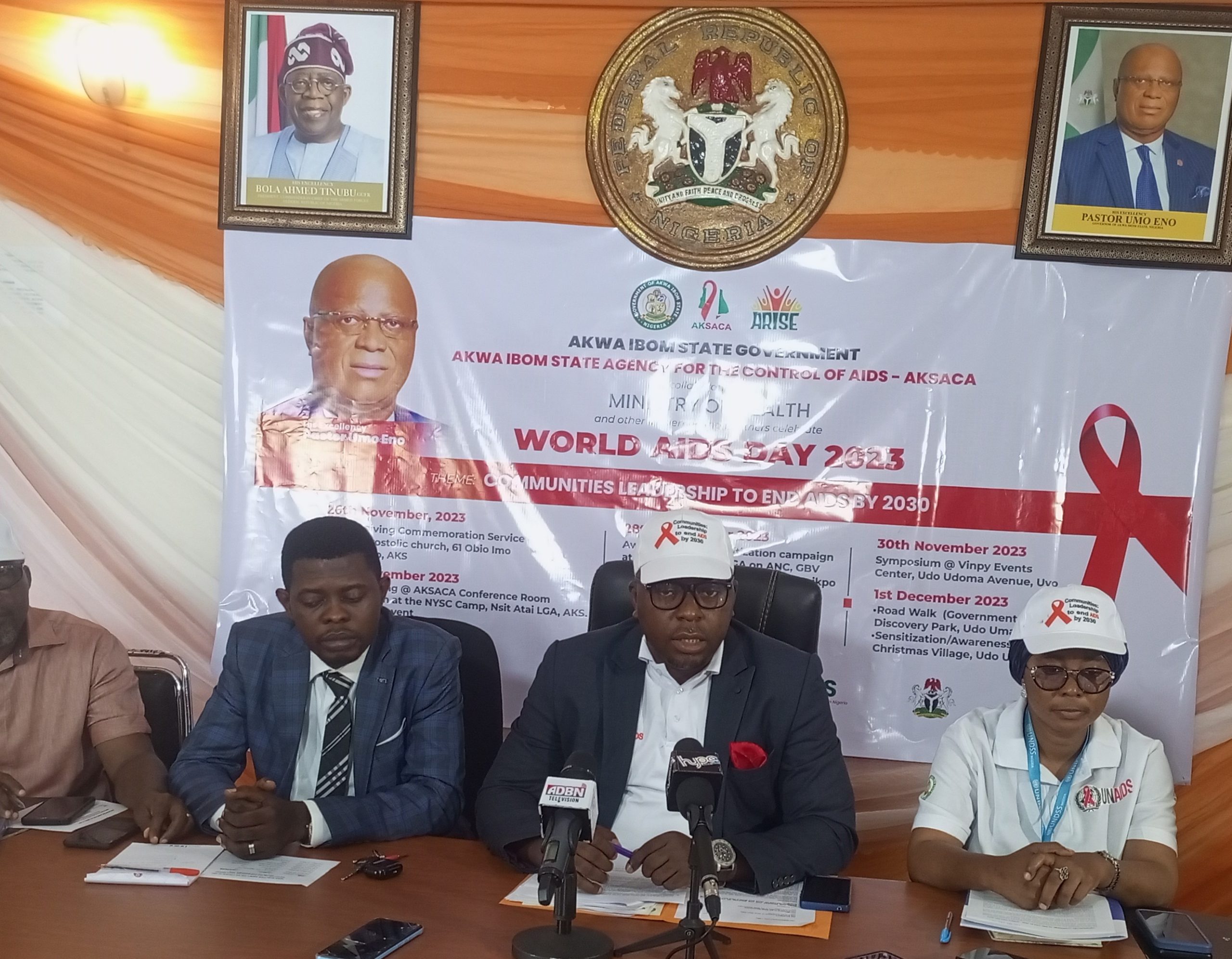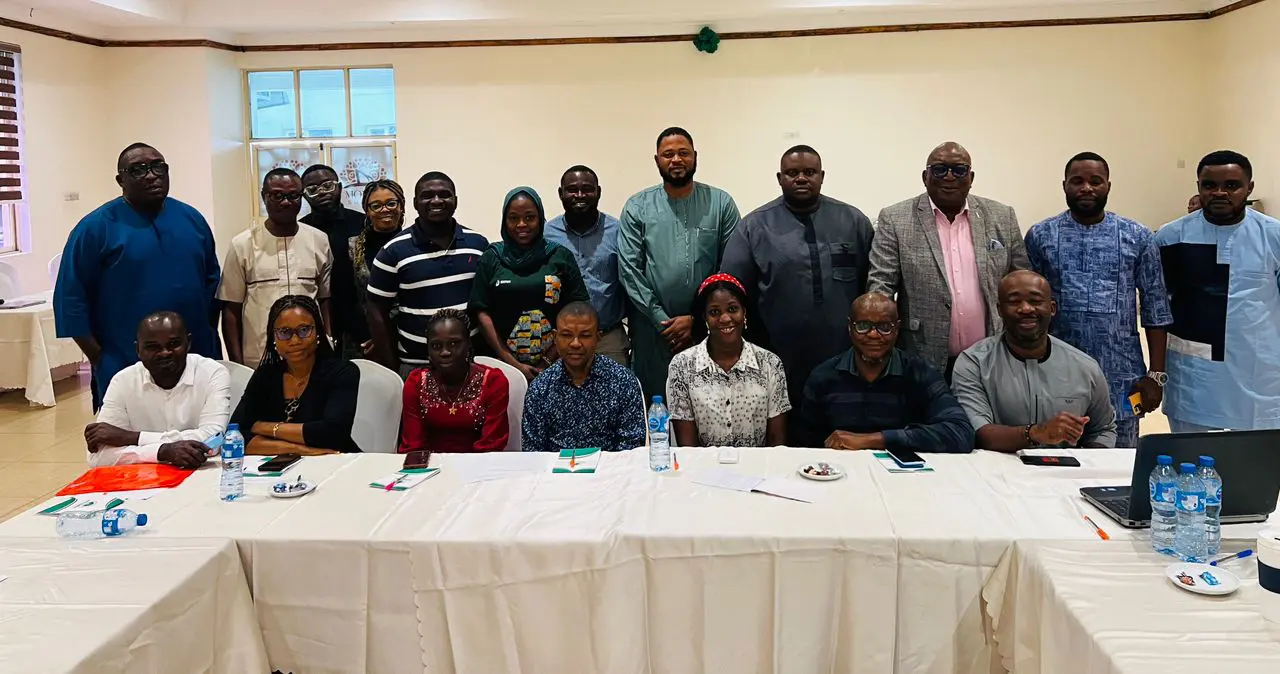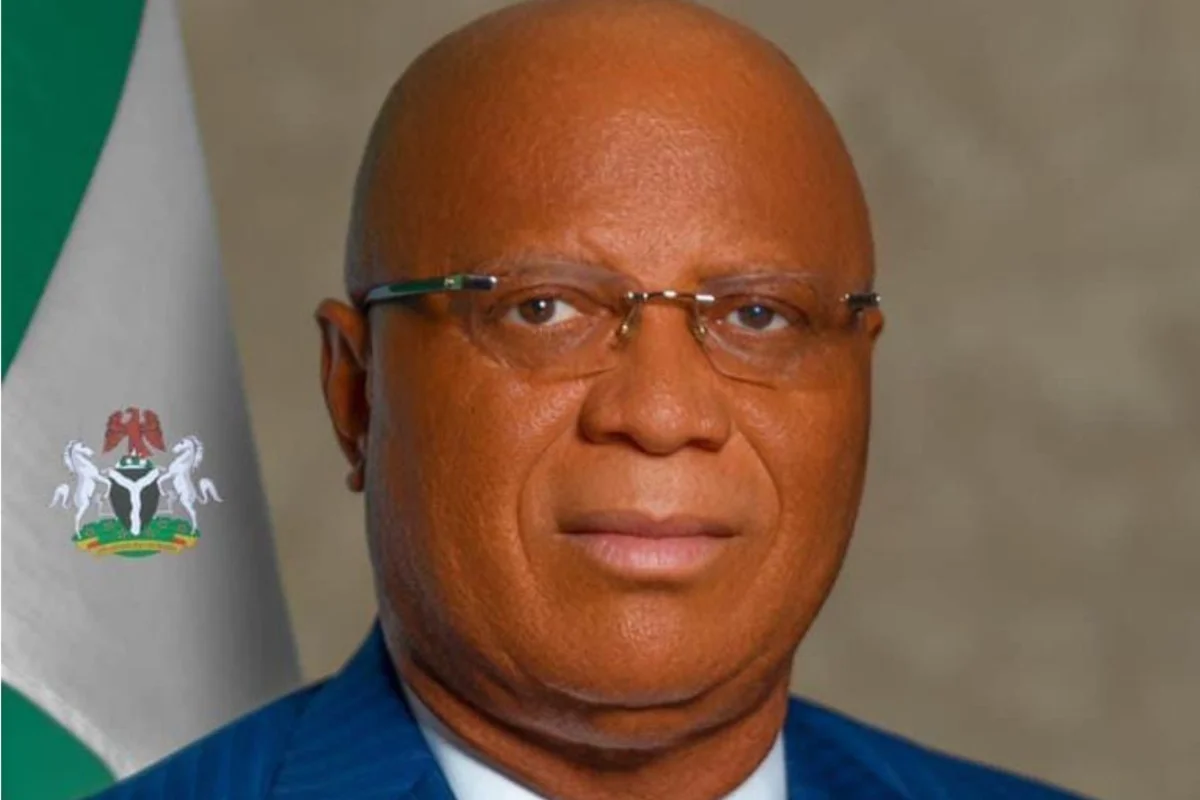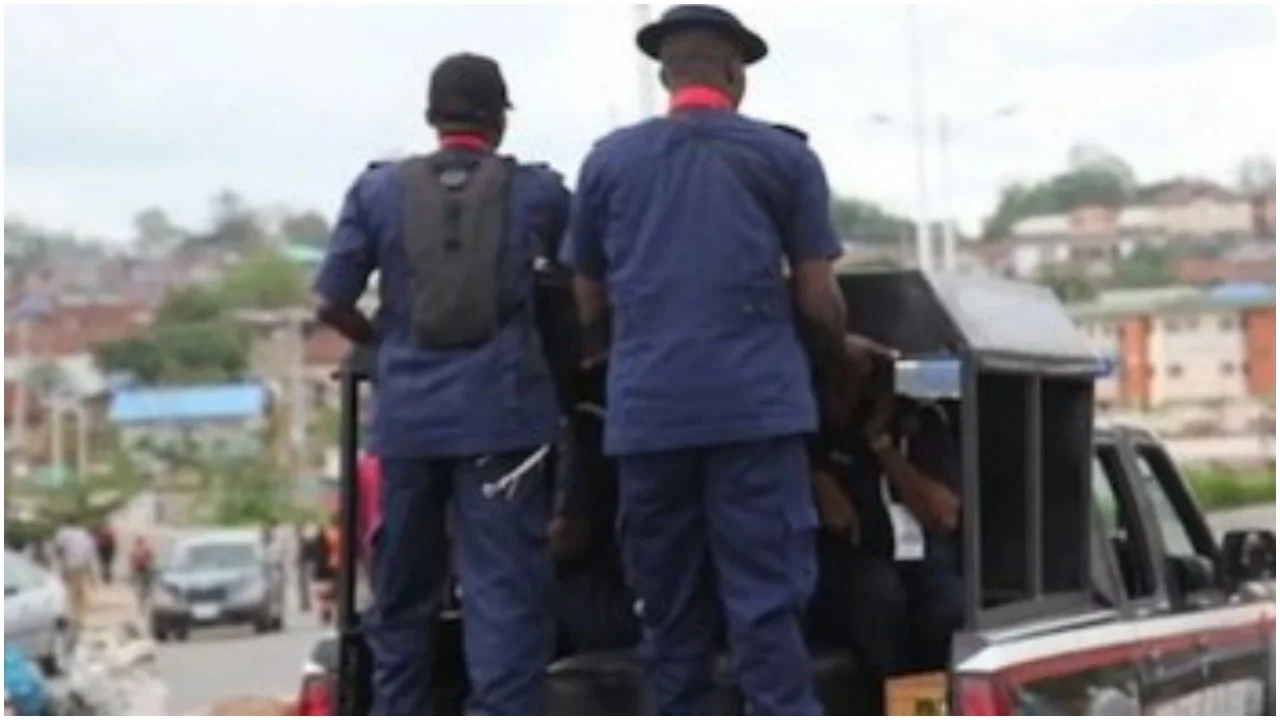The Akwa Ibom State Agency for the Control of AIDS (AKSACA) has flagged-off activities organized to mark the celebration of the 2023 World AIDS Day by December 1.
Addressing a press conference in Uyo on Tuesday, the Project Manager of AKSACA, Dr Enobong Akpan said the global theme of the programme, ‘Let the Communities Lead’ which was domesticated in Nigeria as ‘Communities Leadership to end AIDS by 2030’, reflects the country’s recognition of the importance and the significant role of communities’ leadership in driving the end to HIV/AIDS prevalence.
He said the agency has mapped out activities that would bring all the stakeholders to brainstorm on issues of health in Akwa Ibom, to address the gaps and seek ways to intervene in the gaps so far identified in HIV response in the state.
Speaking further, he said apart from conducting a candlelight procession in honour of the heroes that died due to HIV/AIDS, the agency with its Implementing Partners would organize a sensitization meeting for women both positive and non positive of HIV/AIDS in Ibesikpo Asutan, discuss issues on mother to child transmission and also provide counselling on Gender Based Violence.
“We will do a sensitization and awareness rally to the three high burdened local government areas in Akwa Ibom which our data have reflected. We want to use this opportunity to intervene in the transmissibility and see how to reduce the spread of HIV. The event will end with a town hall meeting to reflect on the theme which is community leadership to end HIV,” he added.
Akpan said more than 200,000 people living with HIV in Akwa Ibom State are on treatment while the prevalence rate of infection is 5.5 per cent according to the last survey. He expressed hope of reduction in the next survey considering the level of sensitization put in by the agency.
Also speaking, Idayat Uthman, Coordinator of UNAIDS, lamented that a life is lost to AIDS every week with 4000 girls and young women being infected with HIV weekly.
Uthman disclosed that out of the 39 million people living with HIV, 9.2 million do not have access to life saving treatment even as she expressed hope that AIDS could be ended by 2030 if communities lead the response.
“But communities are being held back in their leadership. Funding shortages, policy and regulatory hurdles, capacity constraints and crackdown on civil society and on the human rights of marginalized communities are obstructing the progress of HIV prevention and treatment services,” Uthman observed.
On her part, the Coordinator of Association of Women Living With HIV AIDS in Nigeria, ASWHAN, noted that women are the most vulnerable in terms of HIV infection.
According to her, “When we talk about HIV and AIDS women are the most vulnerable and we are the highest population being infected by HIV. This association was formed to give women the opportunity to speak out without fear of stigmatization and discrimination.”
Akwa Ibom agency flags off activities to mark World AIDS Day



